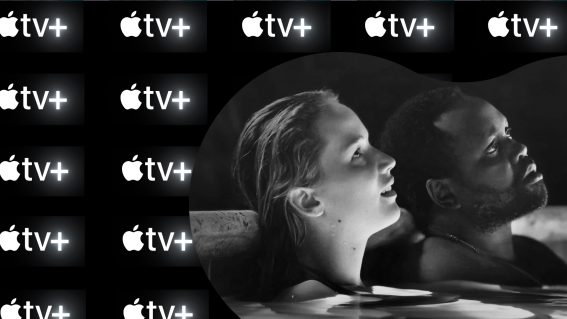The best, most janky-looking fake websites in film and TV
Ugh there’s so many platforms to keep up with these days: FaceBranch, Chitter, YouWillViewIt.com…
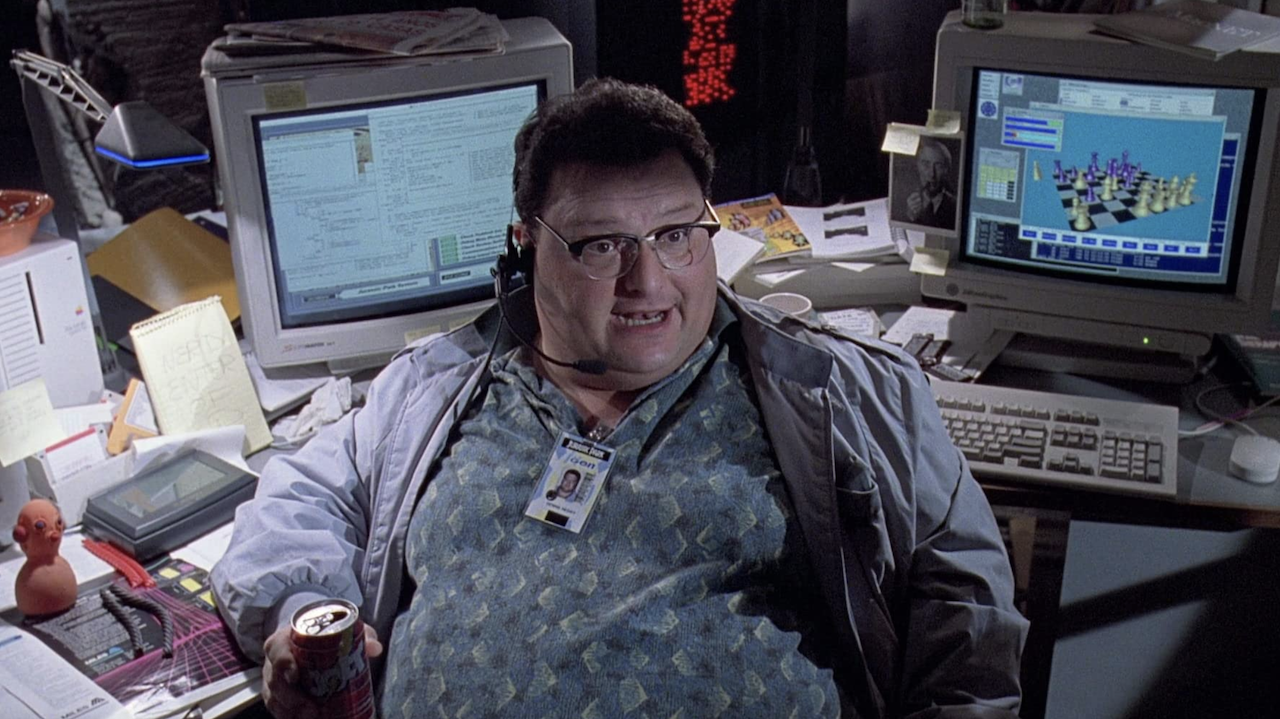
When fictional characters have a perp they need info on, or an online love match they’re desperate to meet, Eliza Janssen is consistently entertained by the shoddy-ass websites filmmakers mock up for them to use. Here’s some of the most ridiculous.
The internet is a necessary, and often tedious, presence in film and TV of today. God do I hate the mandatory exposition in contemporary horror movies where the characters must explain why they can’t use their phones to call for help.
Sometimes titles like Unfriended and, perhaps most obviously, The Social Network will dare to risk defamation suits by including legit apps and platforms as plot devices—so long as they paint Skype/Facebook/Neopets in a positive light, they’re typically good to go on the legal front.
But it’s far more delightful when we’re wrenched out of our suspension of disbelief by a laughably janky-looking fake site in our otherwise realistic, compelling movies and shows. They never fail to make me smile and feel a tiny bit superior to those smug studio big-wigs, even if only in screen-addicted loser status. I picture an entire boardroom of moneyed boomer producers watching the implausible finished product and nodding like, “yep, that’s what internet look like.”
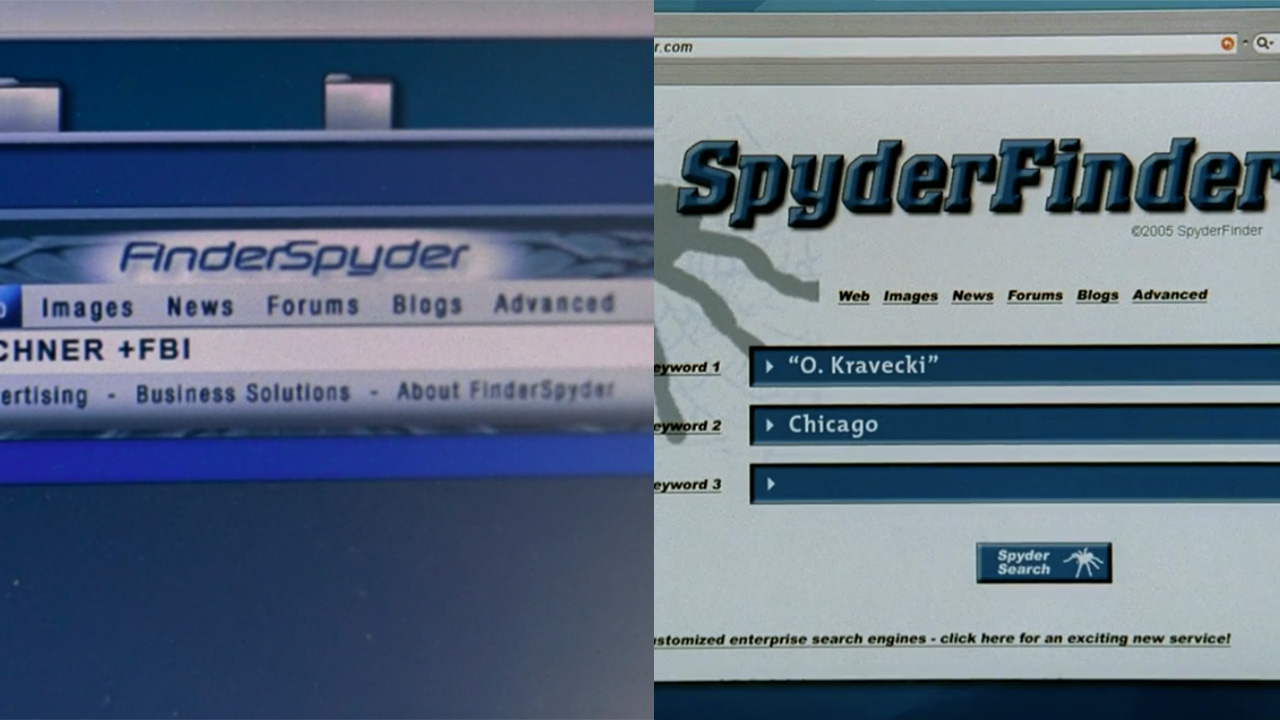
The satirical social media gags in shows like 30 Rock and Community (like dystopian platform MeowMeowBeenz) are fine and all, but the king of made-up websites is undoubtedly FinderSpyder. Known alternately as SpyderFinder for some reason, this fictional search engine has credits in everything from Breaking Bad to The X-Files, mostly being employed to hunt down suspects in network procedurals like Criminal Minds, CSI: Crime Scene Investigation, Bones and NCIS. The latter show notably gave us this iconic scene of far greater internet-usage ignorance, but if we’re going into inaccurate film and TV hacker moments this article would read a mile long.
Google in particular requires filmmakers to endure an exhaustive application process to represent the brand in their title, so the very edgily-named FinderSpyder is a true Hollywood hero, and also Dana Scully’s search engine of choice. She was vocally proud of being “pre-Google” in The X-Files’ 2016 “event sequel series”.
Wait, so Scully knows about Google and still uses #FinderSpyder? https://t.co/bzPACtzMkw
— Danielle (@danielle_yvr) January 26, 2016
The Simpsons is a weird case where the show will explicitly reference Facebook and YouTube, whilst also having its own rip-off stand-ins (SpringFace and MyTube) when the occasion calls for it. I do not ever want to watch a Simpsons episode in which Bart and Lisa operate a smartphone, so I sadly lack any greater insight to the instantly-dated gags that result from these scenes.
The Simpsons’ fandom wiki has its own page for Google, and astutely notes in its “Behind The Laughter” information that “Google is a real website and the most popular online search engine in the world”. The more you know!!

To be fair to these instances of films and shows tryna get with the times, many of the sites we do use IRL have similiarly wacky titles, missing vowels and resembling TellyTubbie names rather than the brain-colonizing international conglomerates they represent. But lame attempts to mimic them, quickly invented in the writer’s room without too much thought, just stand out like a sore thumb.
“Hmm, I don’t know: let’s Roundsearch it. Let’s see what the top Searchsies result is. Bro I’m totally blowing up on SplashFace/YouWillViewIt.com right now.”
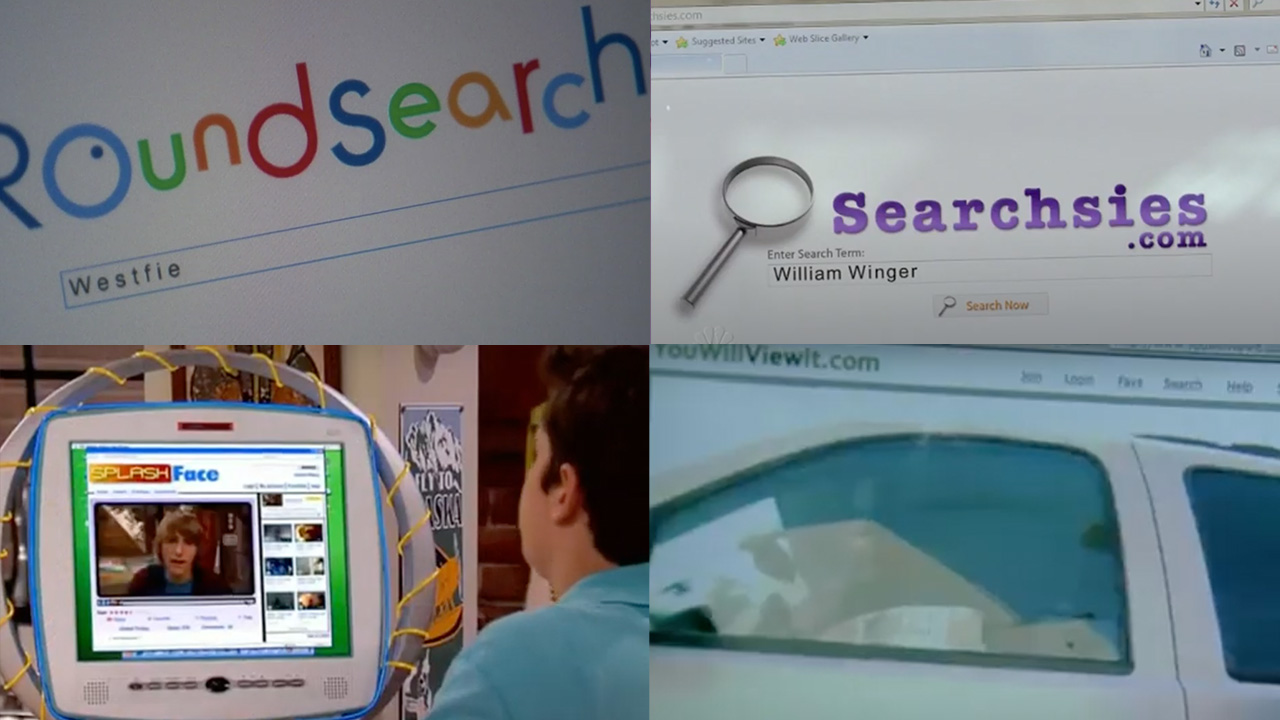
Faked dating apps are among the funniest, like Riverdale’s Grindr analogue Grind’em, or any shot of a character’s profile pic that’s clearly the actor’s professional industry headshot. I burst out laughing when watching the 2004 tween movie Sleepover, with its plot briefly requiring our underage heroes to meet an adult stranger after a brief web interaction. To pacify any (understandably!) concerned parents in the audience, the dating website they use looks like this—
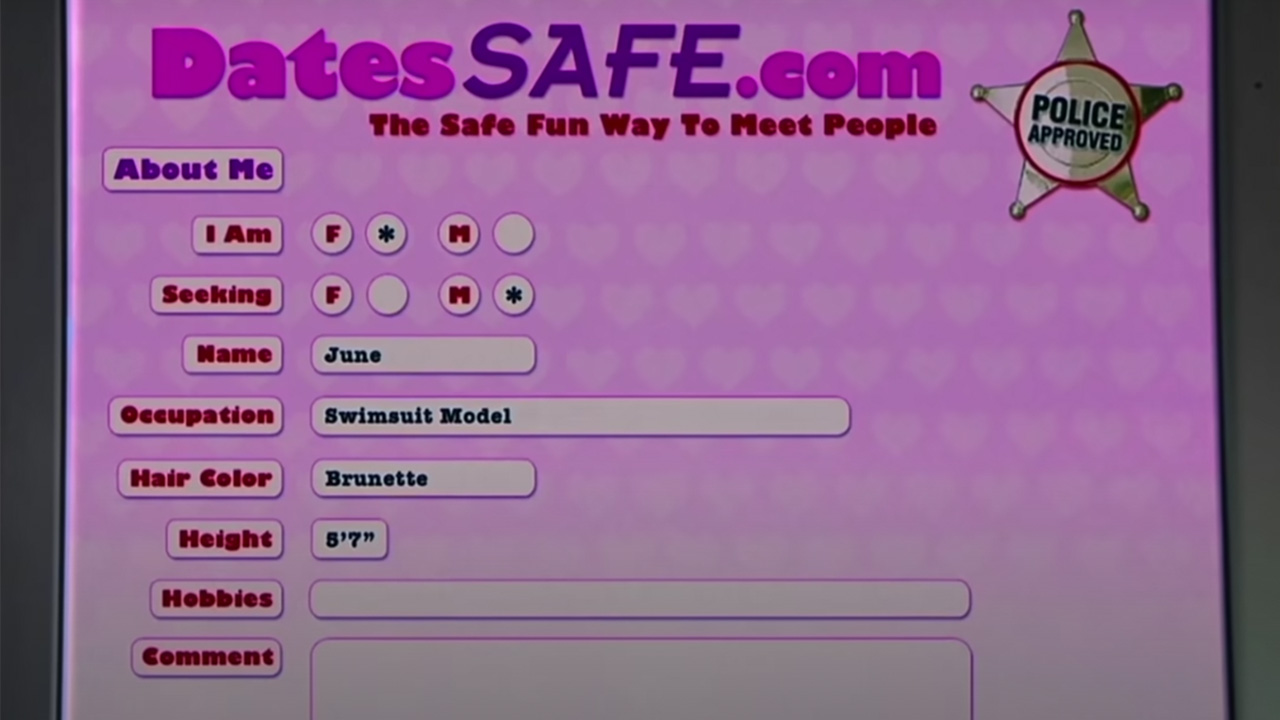
— and our mean girl villain character, after securing a “safe/POLICE APPROVED” date for our protagonist, declares “the net rocks!”. Yes it does.
Anyways, I love these brief moments of slapped-together production design: no matter how hard the actors hack and type away before them, the facsimiles of the places where we spend most of our modern lives never ring true. It instantly dates any story, with Luke Buckmaster noting in his comparison of screenlife thrillers Searching and Missing that both films will likely appear hilariously old-school to viewers of the future.
I just find such scenes strangely humanising and quaint—brilliant, creative filmmakers struggling to accurately capture what normal online behaviour is like. Lest we forget the stunningly nonsensical “vampire research” scene in seminal teen romance Twilight, wherein Kristin Stewart’s Bella:
1. Googles information on vampires,
2. Is directed to a local bookstore where she buys a hefty tome on the subject
3. Returns home to read one sentence in it, and
4. Immediately dumps the book and returns to Google to search “cold ones”, which a search engine could mistakenly interpret as her desire to chug down a few brewskis. Amazing.
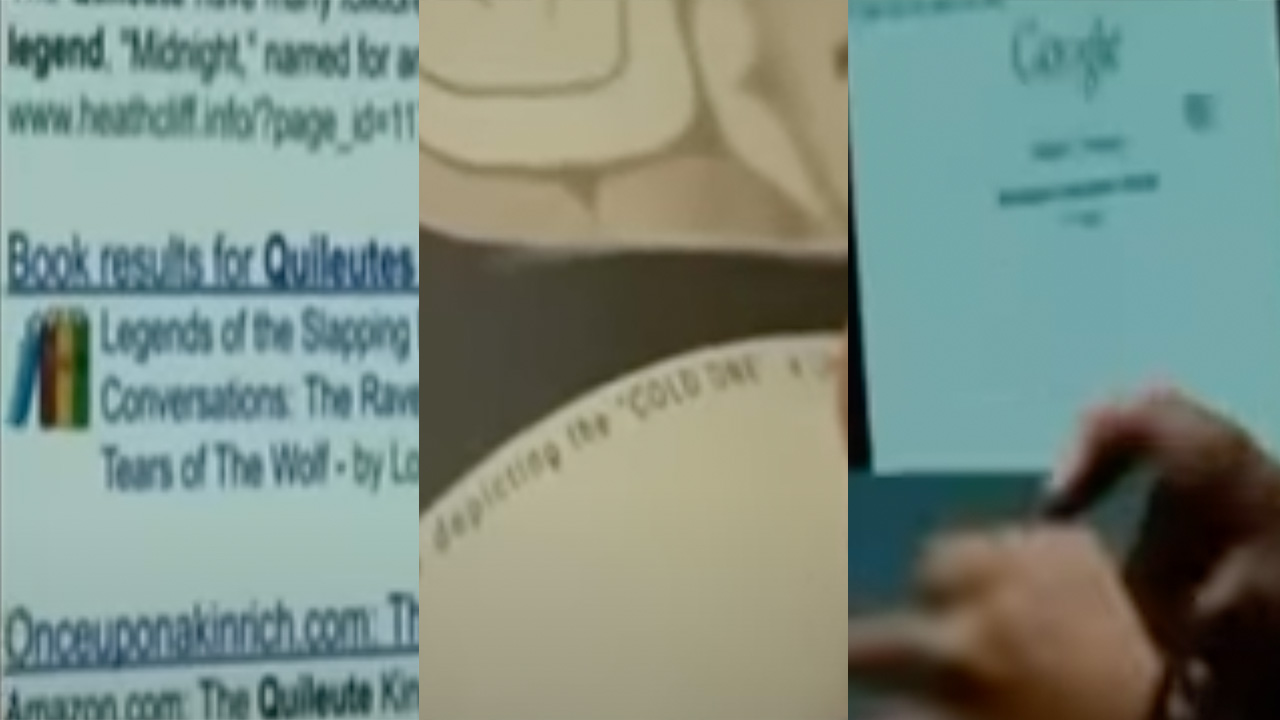
Perhaps it’s a bit sad that, in stories full of ghosts and aliens, the most jarring implausibility to my modern eyes is corny user interface. But come on: did the folks behind The Amazing Spider-Man ever expect to us to believe that anyone would use a fake website called “Bing”? What is that name, like “bada-bing-bada-boom”?!
Ridiculous Ha Ha Ha! Thankfully Peter Parker had the good sense to switch to non-fictional search engine Google in the lame sequel: he is a genius super-hero, after all.

















